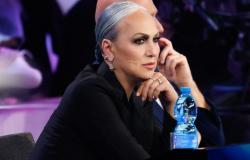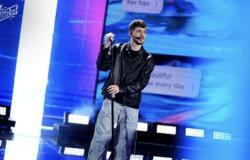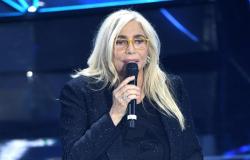During an argument with his colleague Kendrick Lamar, Canadian rapper Drake cloned the voice of Tupac Shakur, one of the most famous hip hop musicians of all time, angering his heirs
On Wednesday Howard King, the lawyer representing the heirs of Tupac Shakur, one of the greatest and most influential hip hop musicians ever, sent the famous Canadian rapper Drake a letter of cease-and-desist (a document that is sent to an individual or company to ask them to stop a certain activity deemed illegal), asking them to remove the song “Taylor Made Freestyle” from all streaming platforms. King wrote that if the song is not removed within 24 hours (and therefore by Thursday), Tupac’s estate will take legal action against Drake.
The song was released last Saturday, as part of a beef (the clash that two rappers engage in by insulting each other in rhyme, often in very original ways) involving Kendrick Lamar, probably the most acclaimed rapper of the last ten years, and Drake himself. The song features a verse sung by a synthesized voice very similar to Tupac’s, created using artificial intelligence. In addition to Tupac, the voice of Snoop Dogg, another very popular American rapper, was cloned in the song.
The use of artificial intelligence software to replicate the voices of singers is a highly debated topic in the United States, and in recent years it has raised some ethical and legal questions: on the one hand that linked to consent on the part of the person whose voice is being simulated, on the other hand that of responsibility on the part of those who choose to use these technologies, which implies the duty to make it known to the public or in any case to clarify the purpose for which it is done.
King wrote that he was “deeply dismayed” by the unauthorized use “of Tupac’s voice and personality,” and called “Taylor Made Freestyle” a “blatant abuse” of the artistic legacy of one of America’s most important hip hop musicians. all time (Tupac died in 1996). He also added that, even if they had been consulted, the heirs would not have given their consent to such an operation.
In the first verse of the song, sung by Tupac’s cloned voice, Lamar is mocked for not responding to “Push Ups”, a song that Drake had released two weeks ago to provoke him and start the beef.

“Push Ups” is in turn a response to a rhyme that Lamar had written in March for “Like That”, a song written in collaboration with the American rapper Future, in which he claimed that Drake and the American rapper J. Cole (who had recently recorded a song in which, together with Lamar, they defined themselves as the three greats of the genre) were not at his level.

After the release of “Like That” J.Cole responded to Lamar with the song “7 Minute Drill”, in which among other things he defined Lamar’s latest records as “boring” and “tragic” ( «Your first shit was classic, your last shit was tragic»). A few days later, however, he publicly apologized to Lamar during a concert in North Carolina, generating a certain stir in the specialized publications that are most attentive to the things that happen in hip hop, a subculture in which to apologize during a beef it is a rather irregular practice. Instead, Drake’s response was awaited, which finally arrived in “Push Ups”.
– Read also: Something you don’t often see in rap
There was talk of the use of artificial intelligence software to clone singers’ voices even in April last year, when a user posted “Heart On My Sleeve” on TikTok, a song that imitated the vocal style of Drake and very famous Canadian singer The Weeknd.
After the release of the song, Universal, the record company of the two cloned artists, published a harsh statement in which it wrote that «training artificial intelligence to use the music of its artists» is not only «a violation of copyright law », but also raises a broader question that concerns the entire recording industry: whether to be “on the side of musicians, the public and human creativity” or on that of deepfakes, denying musicians their due compensation. Universal then managed to have the song removed from the platforms on which it had been uploaded, namely Apple and Spotify, TikTok, YouTube, Deezer and Tidal.
In some American states, proposals have been presented to try to protect singers and record labels from this type of use of artificial intelligence: in March, for example, the Congress of the state of Tennessee approved the Ensuring Likeness, Voice, and Image Security Act , a law that prohibits the use of artificial intelligence to replicate a singer’s voice without their consent.
It is a topic that is also deeply felt by professionals: at the beginning of April around two hundred world-famous artists and musicians had signed a petition promoted by the non-profit organization Artist Rights Alliance (ARA) to protest against the use of artificial intelligence in music, not only to clone singers’ voices, but also to compose songs. Among the many who had signed the petition were Billie Eilish, REM, Elvis Costello, Nicki Minaj, Mac DeMarco, Jon Bon Jovi, Imagine Dragons, Katy Perry and Pearl Jam.
The Artist Rights Alliance, which works to protect the rights and compensation of artists on digital platforms, calls for developers, technology companies and digital music services to pledge not to develop technologies or tools for creating music using artificial intelligence “that undermine or replace the human art of singers and artists or deny us fair compensation for our work.”
«We believe that, when used responsibly, artificial intelligence has enormous potential to advance human creativity. […] But some of the largest and most powerful companies are using, without authorization, our work to train artificial intelligence systems” with the aim of replacing human labor with artificially created “sounds” and “images”, they wrote in the letter.
Continue on the Post








